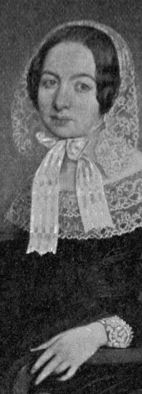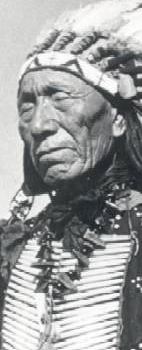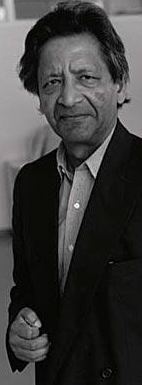Description
The U.S.A.: it resonates in certain ways to those who have lived long years within its borders, but how does it look through other eyes? In this seminar we will attempt to gain a better sense of the U.S.A. by attending to those who came from elsewhere, and who subsequently articulated their sense of the place through acts of literary and cultural production. These others will span from the most venerable indigenes to the most recent immigrants, and from countries and cultures near and far. Their views, whether critical, sympathetic, or somewhere in between, will necessarily impact our own views, and will lead us to a set of new perspectives on the "American experiment."
Genres of emphasis will include autobiography, cultural criticism, performance art and travel literature.
Our methodology will be decidedly historical, with close attention given to the cultural, geographical, and political forces shaping our chosen authors and our chosen texts. In the process, we will also attend to a variety of critical keywords and research methods of general relevance to the English major. Beyond active participation in weekly discussions, seminar members will be responsible for two presentations, three essays, a collective web presence and an essay-based final exam.
Enrollment
Enrollment will be managed via an online waitlist.
Extensions
Extensions for essays are perfectly acceptable so long as you make your request with sufficient notice, and submit your work without unreasonable delay.
You may not miss the final exam; there will be no make-ups allowed.
Grading Components
- 20% toward Class Participation [Seminar Discussions and Presentations]
- 20% toward Web Presence on Collab Workspace [Wiki, Discussion, et al.]
- 10% toward First Essay
- 10% toward Second Essay
- 20% toward Third Essay
- 20% toward Final Exam
Grading Rubric
Essays, presentations, and online work will be evaluated on the basis of clarity, originality, style and supporting evidence.
-
To merit a grade in the A range, work must be outstanding in both form and content.
-
To merit a grade in the B range, work must be distinguished in both form and content.
-
To merit a grade in the C range, work must be satisfactory in both form and content.
Work that is less than satisfactory will be awarded a grade in the D range.
Work that does not meet the minimum standard will be assigned a grade of F.
Seminar Resources
- Collab Workspace
- Course Reserves and Databases via VIRGO
- Google Books
- Honor Policy
- <Pedagogical Manifestos
- Toolkit Materials
Weekly Schedule
01.1 :: R 01.18
Course Overview
02.1 :: T 01.23
02.2 :: R 01.25
03.1 :: T 01.30
03.2 :: R 02.01
04.1 :: T 02.06
04.2 :: R 02.08
05.1 :: T 02.13
05.2 :: R 02.15
Essay 1 Due (1000-1500 Words) :: M 02.19
06.1 :: T 02.20
Masao Miyoshi, As We Saw Them: The First Japanese Embassy to the United States [1860]; (1979) [selections]
Japan
Yu Kil-chun, "The Letters of Yu Kil-chun" (1884); Observations on a Journey to the West (1889) [selections]
Korea
Joseph Heco, Narrative of a Japanese (1895) [selections]
Japan
06.2 :: R 02.22
07.1 :: T 02.27
07.2 :: R 03.01
José Martí, Inside the Monster: Writings on the United States and American Imperialism [1880-1900]; (1975) [selections]
Cuba
Pedro Albizu Campos, "Observations on the Brookings Institution Report" (1930)
Puerto Rico
Spring Break
08.1 :: T 03.13
Maxim Gorky, "The City of the Yellow Devil" (1906); "Realm of Boredom" (1906); "One of the Kings of the Republic" (1906); "Reply to a Questionnaire Received From an American Magazine" (1927-9)
Russia; Soviet Union
Vladimir Mayakovsky, My Discovery of America (1925) [selections]
Georgia; Soviet Union
08.2 :: R 03.15
09.1 :: T 03.20
Federico García Lorca, Poet in New York (1940) [selections]
Spain
Pablo Neruda, Canto General (1948); A Call for the Destruction of Nixon and Praise for the Chilean Revolution (1973) [selections]
Chile
09.2 :: R 03.22
Diego Rivera, Detroit Industry (1932-3); Modern Industry (1933); Man At The Crossroads (1934); Marriage of the Artistic Expression of the North and of the South on this Continent [Pan American Unity] (1940)
Mexico
Carlos Bulosan, America Is in the Heart (1946) [selections]
Philippines
10.1 :: T 03.27
Younghill Kang, East Goes West:The Making of an Oriental Yankee (1937) [selections]
Korea
Simone de Beauvoir, America Day By Day (1948) [selections]
France
C.L.R. James, American Civilization (1949) [selections]
Trinidad
10.2 :: R 03.29
R.K. Narayan, My Dateless Diary: An American Journey (1964) [selections]
India
Festus Mkuni, "Some Letters of Festus Mkuni" (1967)
Zambia
Essay 2 Due (1000-1500 Words) :: F 03.30
11.1 :: T 04.03
Fidel Castro, Address to the United Nations General Assembly (1960)
Cuba
Hugo Chávez, Address to the United Nations General Assembly (2006)
Venezuela
11.2 :: R 04.05
12.1 :: T 04.10
Duc Thanh, "Night of the Moon" and "One Moonlit Night", in Poems from Captured Documents (1966)
Vietnam
Nhat Hanh, "Peace" and "Condemnation", in Viet Nam Poems (1967)
Vietnam
Vo Nguyên Giáp, "Our People's War Has Defeated The U.S. Naval War" (1969) [selections]
Vietnam
W 04.11 :: Film Screening of Sergio Leone's C'era una volta il West, Room and Time TBD
12.2 :: R 04.12
13.1 :: T 04.17
V.S. Naipaul, A Turn In the South (1989) [selections]
Trinidad
13.2 :: R 04.19
14.1 :: T 04.24
14.2 :: R 04.26
Gary Younge, No Place Like Home: A Black Briton's Journey Through the American South (1999) [selections]
Barbados; England
Bernard-Henri Lévy, American Vertigo: Traveling America in the Steps of Tocqueville (2006) [selections]
France
15.1 :: T 05.01
Essay 3 Due :: M 05.07 (1500-2000 Words)
Final Exam :: F 05.11, 9 am-noon, Bryan 330
Last Modified By Jim Cocola 2007.01.31 17.25





















